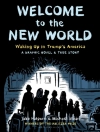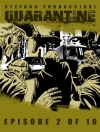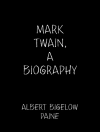Lu Wenfu, like the wonton-sellers, rickshaw pullers, and petty bureaucrats in these stories, was buffeted by four decades of changes in Chinese politics and society since the 1949 Revolution. Denounced as a writer and demoted in 1957, in 1965, and again in 1969 during the Cultural Revolution, he returned to writing in 1978 after two decades of enforced silence.
Still, his voice remains one of the most attractive and sympathetic among China’s major writers – understanding, not spiteful, capable of humour and gentle irony. His outstanding novella The Gourmet and the other stories in this, his only fully-curated collection in English, reveal the China that opened to the world after Mao’s death. Here the tensions of a society emerging from years of upheaval are drawn with the relaxed, lyrical line of a master painter.
Cuprins
Introduction: A Writer’s Life . . . . . . . . . . . . . .
The Man from a Peddlers’ Family . . . . . . . . .
Tang Qiaodi . . . . . . . . . . . . . . . . . . . . . . . . . . .
The Boundary Wall . . . . . . . . . . . . . . . . . . . . .
The Doorbell . . . . . . . . . . . . . . . . . . . . . . . . . .
The Gourmet . . . . . . . . . . . . . . . . . . . . . . . . . .
Graduation . . . . . . . . . . . . . . . . . . . . . . . . . . . .
World of Dreams, a Valediction. . . . . . . . . . . .
Despre autor
LU WENFU (1927-2005) was born in Taixing, a small town in northern Jiangsu Province, China. He moved to the canal city of Suzhou for high school, and this atmospheric place became his muse throughout his turbulent writing life. For university, he went to the Liberated Areas and then supported the communist revolution in northern Jiangsu. In 1949 he returned to Suzhou and became a reporter of New Suzhou Report (now renamed as Suzhou Daily). In 1955 he started the first period of his long writing career. Two years later Lu became a member of Literary Federation of Jiangsu. In 1957 he joined Gao Xiaosheng and other important writers to found the magazine The Explorers. It came under attack by the Communist leadership after the Hundred Flowers thaw ended. Lu was denounced as a Rightist. During the Great Leap Forward that followed, he was sent to do manual labour in a machine tool plant in Suzhou. During his three years as a mechanic, Lu was awarded distinctions including ‘Excellent Apprentice’ and even ‘Crackerjack at Technical Innovations’. As a result, he was deemed reformed and was allowed to write again. Nevertheless, with the Cultural Revolution breaking out in 1966, Lu was denounced once again, ‘struggled against’, forced to confess to ideological crimes and paraded through the streets with a placard around his neck. Together with his wife and two daughters, he was sent to a rural area for reeducation through labor until 1976. After the Cultural Revolution ended with Mao Zedong’s death in 1976 and the coming of the Deng Xiaoping reform era, Lu returned to Suzhou in 1978, at the age of 50 to start his second career as a writer. Lu became the managing editor of Suzhou magazine, and he was associated with journalism and literature, and of course also the charm. food, and atmosphere of his beloved Suzhou city for the rest of his life.












